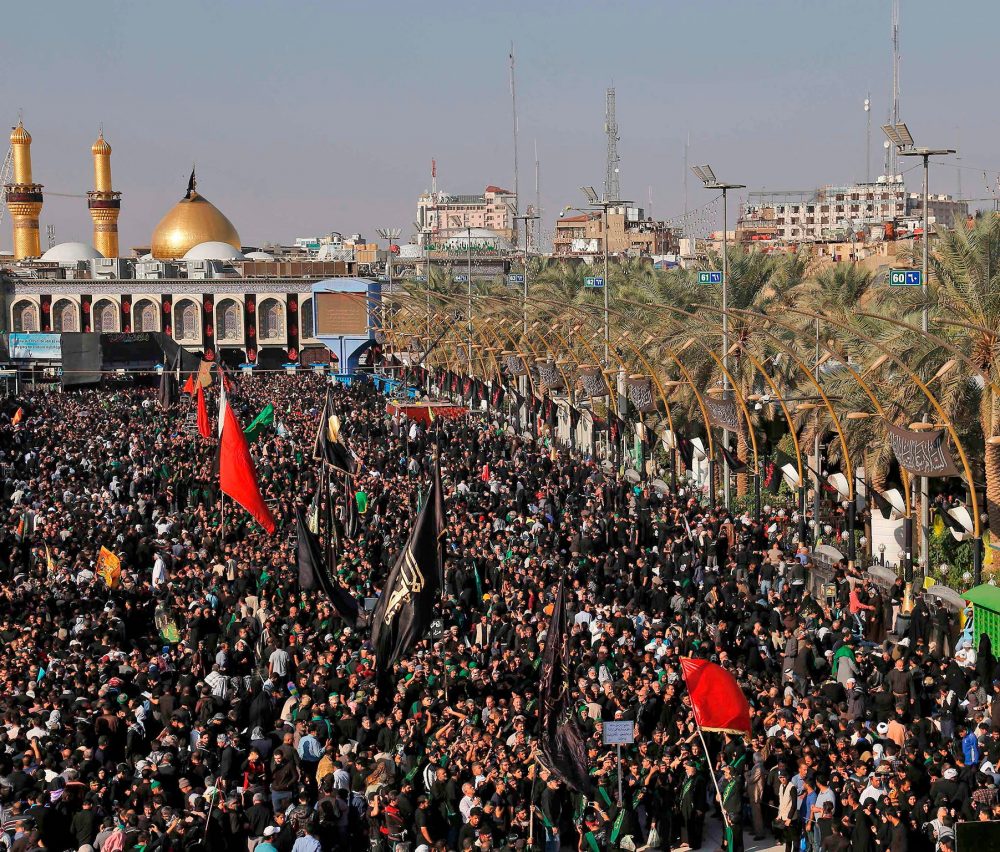Arbaeen, observed on the 20th of Safar in the Islamic calendar, marks the culmination of a period of mourning for the martyrdom of Imam Hussein, the grandson of the Prophet Muhammad. This commemoration holds profound significance within the Shia tradition, encapsulating not only remembrance but also a rich tapestry of spiritual and social teachings. The observance draws millions from around the globe, converging in places such as Karbala, Iraq, where the tragic events of the Battle of Karbala unfolded in 680 AD. A closer examination of Arbaeen reveals its multifaceted dimensions, inviting deeper consideration of the teachings, values, and communal bonds forged in its observance.
At its core, Arbaeen epitomizes the theme of resistance against tyranny and injustice. The martyrdom of Imam Hussein serves as an eternal reminder of the battle between good and evil. His steadfastness in the face of oppression resonates powerfully with modern struggles for justice and dignity. The poignant message of Arbaeen transcends temporal boundaries, urging individuals to uphold principles of equity and moral fortitude amidst adversities. This sense of justice is not merely historical. It is a call to participate in the construction of a just society today.
Moreover, the pilgrimage to Karbala during Arbaeen is characterized by acts of devotion and service, reflecting the deeply embedded principle of 'Ziyarat,' which translates to visitation. Participants undertake this journey, often on foot, as a form of physical manifestation of their love and allegiance to Imam Hussein. This journey fosters a communal identity, where individuals from diverse backgrounds unify under shared beliefs and values. The sentiment of brotherhood and solidarity witnessed during Arbaeen is palpable, as people assist one another in myriad ways, including providing food, water, and medical aid. This collective experience not only nurtures a sense of belonging and community but also strengthens the resolve against social injustices.
The ritualistic aspects of Arbaeen are steeped in profound symbolism. The act of mourning signifies a personal and communal accountability toward the principles for which Imam Hussein sacrificed his life. Shia Muslims engage in lamentation and recitations of elegies that recount the tragic events at Karbala. Such practices serve as a therapeutic avenue, allowing individuals to channel their grief into an impetus for action. The narratives told during this period evoke a sense of urgency, fostering a conscientious awareness of the moral dilemmas faced in contemporary society. Through these rituals, the teachings of Imam Hussein remain resonant in the hearts and minds of the believers, perpetuating his legacy through their ongoing commitment to truth and justice.
Arbaeen also presents opportunities for reflection on the nature of sacrifice and martyrdom. The profound commitment exhibited by Imam Hussein and his companions stands as a paradigm of selflessness. Their refusal to capitulate to oppressive forces underscores an essential tenet within Shia theology: that the defense of truth and righteousness transcends personal survival. Such reflections prompt individuals to consider the sacrifices in their own lives. What moral struggles do they confront? How can they stand firm in their convictions when faced with adversity? This introspection fosters a personal connection with the overarching themes of Arbaeen, encouraging individuals to embody the values espoused by Imam Hussein.
The phenomenon of Arbaeen extends beyond individual reflection; it is emblematic of a larger socio-political consciousness within the Shia community. Historically, the observance of Arbaeen has functioned as a platform for articulating grievances and resisting marginalization. It has evolved into a collective movement advocating for human rights and dignity while confronting systemic oppressions experienced by Shia populations globally. The convergence of pilgrims serves as a demonstration of resilience, asserting the visibility and voice of a community that has historically faced persecution. Each step taken on the journey to Karbala is a reaffirmation of identity and a stand against the forces of division and exclusion.
In a broader cultural context, Arbaeen serves as a lens through which the ideals of compassion and humanitarianism can be explored. The overwhelming generosity exhibited during this pilgrimage, especially the provision of food and shelter to pilgrims, reflects the Islamic tenet of hospitality. This act of service is a practical application of the belief in the sanctity of life and the importance of community ties. The symbolic act of sharing sustenance encourages a reinforcement of social connections, transcending barriers of ethnicity, nationality, and class. Consequently, Arbaeen becomes a microcosm of global unity, advocating for a more just and compassionate world.
In conclusion, the teachings of Arbaeen, deeply entrenched in the Shia faith, offer a profound exploration of the themes of justice, sacrifice, and community. The observance serves as a vital mechanism for preserving the legacy of Imam Hussein while fostering a resilient identity among Shia Muslims. The pilgrimage to Karbala elevates both personal reflection and social activism, intertwining individual morality with collective responsibility. This confluence of spiritual and social dimensions of Arbaeen beckons one to delve deeper, to elucidate the reasons behind the fervent devotion observed annually, and to recognize that the journey toward justice and equity remains ever relevant, generations after the tragic events of Karbala.


